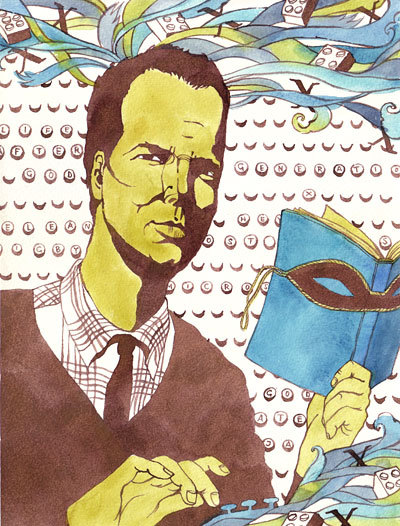 A.O. SCOTT: “Maybe not the glory of rushing a Nazi foxhole, or braving municipal billy bats to stop a war in Indochina,” he notes, trying to get a fix on what exactly he and his ilk achieved in their heroic youth, “but the privileged of our generation did what they could, like the rest of us.” We did what we could: the slogan of the underachiever, the excuse maker, the loser. What they did, at least on the evidence of Milo’s testimony, was smoke weed, argue about Theory, sleep with one another’s girlfriends and boyfriends and wonder what was going to happen next. What happened next is what always happens: these kids — slackers, Gen-Xers, take your pick of cringe-inducing monikers — grew up. Milo is in his early 40s, or so one surmises from his pop-cultural references and from the fact that the author, Sam Lipsyte, was born in 1968. He’s not a kid anymore: he’s a man of a certain age. And “The Ask” is, at least so far, the definitive literary treatment of a hugely important social phenomenon. Mr. Lipsyte, through the shambling, highly articulate and pathetic persona of Milo Burke, has announced the onset of the Generation X midlife crisis. The Gen X what? I wish I could inflect those paired pop-sociological clichés with the requisite irony, but my air-quote fingers are afflicted with incipient arthritis. The ridiculousness of the phrase is telling, though, since it registers the sense of absurdity, the innate nonseriousness, that has been this generation’s burden ever since the Canadian novelist Douglas Coupland christened us in his 1991 novel, “Generation X,” the title of which was inspired by the second-rate punk band that gave the world Billy Idol. MORE
A.O. SCOTT: “Maybe not the glory of rushing a Nazi foxhole, or braving municipal billy bats to stop a war in Indochina,” he notes, trying to get a fix on what exactly he and his ilk achieved in their heroic youth, “but the privileged of our generation did what they could, like the rest of us.” We did what we could: the slogan of the underachiever, the excuse maker, the loser. What they did, at least on the evidence of Milo’s testimony, was smoke weed, argue about Theory, sleep with one another’s girlfriends and boyfriends and wonder what was going to happen next. What happened next is what always happens: these kids — slackers, Gen-Xers, take your pick of cringe-inducing monikers — grew up. Milo is in his early 40s, or so one surmises from his pop-cultural references and from the fact that the author, Sam Lipsyte, was born in 1968. He’s not a kid anymore: he’s a man of a certain age. And “The Ask” is, at least so far, the definitive literary treatment of a hugely important social phenomenon. Mr. Lipsyte, through the shambling, highly articulate and pathetic persona of Milo Burke, has announced the onset of the Generation X midlife crisis. The Gen X what? I wish I could inflect those paired pop-sociological clichés with the requisite irony, but my air-quote fingers are afflicted with incipient arthritis. The ridiculousness of the phrase is telling, though, since it registers the sense of absurdity, the innate nonseriousness, that has been this generation’s burden ever since the Canadian novelist Douglas Coupland christened us in his 1991 novel, “Generation X,” the title of which was inspired by the second-rate punk band that gave the world Billy Idol. MORE
Curated News, Culture And Commentary. Plus, the Usual Sex, Drugs and Rock n' Roll
